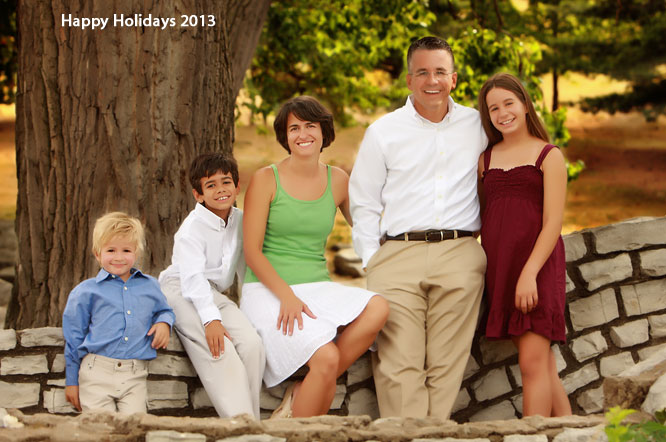
a story and conversation repository (est. 2000)






a story and conversation repository (est. 2000)
|
|
|||||

|

|

|

|

|
||
|
|
||||||
|
||||||||||||||||||||||||||||||||||||||||||||||||||||

i participate in a reading program at the university i work for. the program instructs all incoming freshmen to read a book, a book chosen by a committee of folks. the book is meant to stimulate thought and conversation about a range of topics. on the day before classes begin the freshmen attend a discussion group with around fifteen of their new peers. the talk spans one and a half hours and is led by a teacher or administrator. the chosen books seem to deal in social topics, many of which do not touch in any real way the student body we are visiting with. thus, for me it is an annual challenge to try to figure out how to best engage the students in the material. this year's test, a series of essays titled Notes From No Man's Land by a Eula Biss, proved particularly slippery as it discussed the continuing trials of a young female struggling to find a place where she felt she belonged and at ease. again, we are pitching the material to a body of students who are largely not, seemingly, uncomfortable or out of place but young and bright and well-supported and full of potential. so how to make this work resonate with them? i found it would take an act of magic.
as we came together i touched on the book in a general sense commenting on the thread of belonging and group membership or in this case the lack of either feeling. next, i broke the students into groups of five and asked them to talk in turn talk about the five most important and influential groups they were part of. i had emailed this question to them days before our meeting to give them a chance to think on it some before-hand. after about ten minutes i brought us back together and asked each cluster to share any common answers as well as any unique. as you would guess lots of agreement existed: race, family, nationality, religion, geography, and class being the big five. as for unique ones outside of this there really weren't any so i suggested a few i thought should maybe be on the list. i added being born healthy, being part of a free society, living in a modern era and a few more but you get the gist. after extending the possible group affiliations a bit i had them huddle back up and asked them to discuss their role in selecting or obtaining membership into the groups that prove most influential in their lives. i again gave them about ten minutes and then pulled us back together. this time when i polled each group the answers were, predominately, that they did nothing, personally, to attain inclusion into these most infuluenual groups they belonged to and benefitted from.
I look out and I see a lot of proud, accomplished young people in this room. I see people sitting tall and feeling proud at their arrival at this fine institution, one of the greatest in the world, and I see the sense of accomplishment in your faces. But I need to tell you something—the success is not yours. You are not, solely at least, responsible for this victory. The success belongs to the people who raised you and who taught you and supported you up till now. They are the ones to feel proud today, to walk tall in your arrival at this place of learning because it is their good work and tireless deeds and contributions that made this possible for you. Yes you contributed. I'm not taking that away from you but you did not do it alone and the greatest contributions came from your support network. Because if you were born in the neighborhood I grew up in, you almost certainly would not be sitting in this room listening to me right now.
again, that is from memory and definitely not exact, but the spirit is there and i conveyed this to my students on this day. so did they participate? yes. but is it achievement they can fully claim on their own? no. as i recall the room was about as silent and focused as it was a year earlier.
at this point i summarized where we were. (1) we predominately agreed on what the most influential groups in our lives were, and upon further examination, (2) we find that we did nothing to secure our inclusion into these influential groups. now i wanted to teach them how situational these memberships were. i pointed to a student and said:
if warren and i were standing in line next to one another at the nearby starbucks, odds are we wouldn't talk. odds are he's grabbing a coffee and off to meet friends. odds are i'm grabbing a coffee and headed back to my kids. he's young. i'm old. and we've got way more important and relevant groups in arms and minutes reach. now take warren and i, pick us up and transport us to the other side of the world and drop us in a starbucks in downtown hong kong. do you think we'll still not talk? or will we turn to one another and ask if the other speaks english and upon learning they do ask if they are american and when they are, ask where they live and when i learn he's from new hampshire, i'm going to say i'm from missouri and look at that, we're practically neighbors. hell, we might even hug. why? because we suddenly share a couple groups when we don't have other, more important or accessible groups nearby.
now just as easily as you can find yourself rasiing or lowering the import of a group membership, you could find yourself cast from a group. and how much do you think that matters? another group we all belong to is the group of the clothed. in this group we believe that when you leave your house you should be wearing clothes. now if i could snap my fingers and make one of you be suddenly naked, i bet i could disrupt your confidence a bit. i bet you'd go from sitting there confidently, attentively to suddenly being able to think of nothing else but how to get out of here. by that one adjustment i could drain every bit of confidence and security you have at this moment by removing you from one group affiliation, a group affiliation you didn't even deem important, or even name, earlier. you have every other one that matters to you. your health. your family. you race. your wealth. you've just lost this one and it would completely decimate you in the moment. that is how tenuous these affiliations can be. the question that remains is: what does this say about us as individuals? what does it say about our character? (longish, silent pause) my hope for this, this bit of magic, is that each of you now possess a better sense for the mood and confusion and lonliness eula biss describes in her essays. further, i hope you will never again take for granted the benefits and advantages your group affiliations afford you. and possibly more importantly, i hope that going forward you will look at people in groups other than yours slightly differently knowing they most likely were handed, good or bad, a set of group affiliations they had no say in, that move to define them, just like they move to define you. after the session as the students were filing out, one of them approached me, shook my hand and said she was appreciative i was her first ever college-teacher. for this great memory, i would like to thank my family, friends, mentors and support network for making that handshake possible. family photo by Robert Westrich—and for the record, in the fifteen months since that photo was taken, i have lost twenty-two pounds—for any who might think that seems like a lot, please note i have eight more to go.
DEC 2013
|
||||||||||||||||||||||||||||||||||||||||||||||||||||
|
||||||||||||||||||||||||||||||||||||||||||||||||||||
|
||||||||||||||||||||||||||||||||||||||||||||||||||||
|
|
||||||||||||||||||||||||||||||||||||||||||||||||||||
|
|
|
||||
| Home | Troy Notes | Monorail | TroyScripts | Photo Gallery |